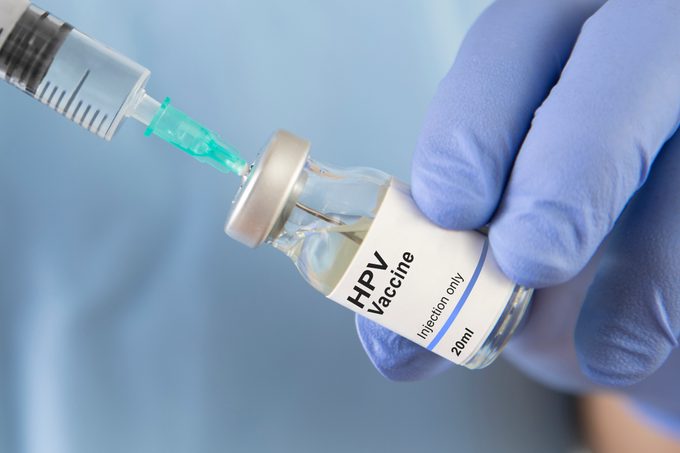Fight Inflammation: One Simple Action, Expert Says

Understanding the Hidden Health Benefits of Vaccination
Vaccines are often seen as a way to prevent infectious diseases, but their benefits extend far beyond that. From reducing cancer risk to protecting vulnerable members of the community, there are several surprising reasons why getting vaccinated is essential for overall health and well-being.
1. Some Vaccines Protect Against Certain Cancers
While many people associate vaccines with preventing infections, some also play a critical role in lowering the risk of specific cancers. The human papillomavirus (HPV) vaccine is one such example. Known for its role in preventing cervical cancer, this vaccine has also been shown to reduce the risk of head and neck cancers in men and boys. A 2024 study published in the Journal of Clinical Oncology found that HPV vaccination significantly lowers the likelihood of these cancers, making it an important tool for both men and women.
Another example is the Hepatitis B vaccine, which prevents chronic Hepatitis B infection—a major cause of liver cancer worldwide. By stopping the virus before it can lead to long-term inflammation and damage, these vaccines help break the cycle that can eventually lead to cancer development.
2. Vaccines Can Reduce the Risk of Heart Attack or Stroke
The flu shot is not just for preventing seasonal illness; it may also play a role in reducing the risk of heart attacks and strokes. A 2023 meta-analysis published in Scientific Reports found that individuals who received the flu vaccine had a 26% lower risk of heart attacks and a 33% reduction in cardiovascular-related deaths. This is because the flu causes widespread inflammation in the body, which can strain the heart and blood vessels—especially in those with existing conditions like heart disease or diabetes.
For people with pre-existing health issues, this added stress can be enough to trigger a cardiac event. Getting vaccinated helps protect against this risk, offering a layer of defense during flu season.
3. Vaccination Helps Fight Antibiotic Resistance
One of the less obvious but crucial benefits of vaccination is its role in combating antibiotic resistance. Dr. Yancey explains that even viral infections can lead to bacterial superinfections that require antibiotics. For instance, the flu can weaken the immune system, increasing the risk of secondary infections like pneumonia or sinusitis, which often need antibiotic treatment.
Every time antibiotics are used, bacteria have more opportunities to evolve and become resistant. By preventing the initial viral infection through vaccination, we reduce the likelihood of needing antibiotics, helping preserve their effectiveness for when they’re truly necessary.
4. Vaccines Protect Vulnerable People in Your Community
Beyond personal health, vaccination plays a vital role in protecting those around you. Individuals with weakened immune systems—such as newborns, cancer patients, and the elderly—are especially vulnerable to infectious diseases. When enough people in a community are vaccinated, it creates a protective barrier known as herd immunity, which reduces the spread of disease and safeguards those who cannot be vaccinated themselves.
This concept is supported by the Mayo Clinic, which highlights how widespread immunization helps prevent outbreaks and protects individuals who are too young, old, or sick to receive certain vaccines. By getting vaccinated, you contribute to a safer environment for everyone.
5. They Can Prevent Serious, Long-Term Complications
Vaccines also help prevent serious, long-term complications from infectious diseases. Before the mumps vaccine, boys who contracted mumps were at risk of permanent infertility. Polio often left children paralyzed, while rubella infections during pregnancy could cause severe birth defects. The Hepatitis B vaccine prevents liver failure, and the chickenpox vaccine not only protects against childhood illness but also reduces the risk of shingles later in life.
These examples illustrate how vaccines have transformed public health, making once-common complications rare today.
Why Vaccines Are Essential
Vaccines offer a wide range of benefits, from lowering cancer risk and protecting the heart to fighting antibiotic resistance and safeguarding communities. They are a cornerstone of public health, ensuring healthier and safer futures for generations to come. As Dr. Yancey emphasizes, even healthy adults can be at risk for vaccine-preventable illnesses, making it crucial to get vaccinated—not just for yourself, but for your family and community.
Post a Comment